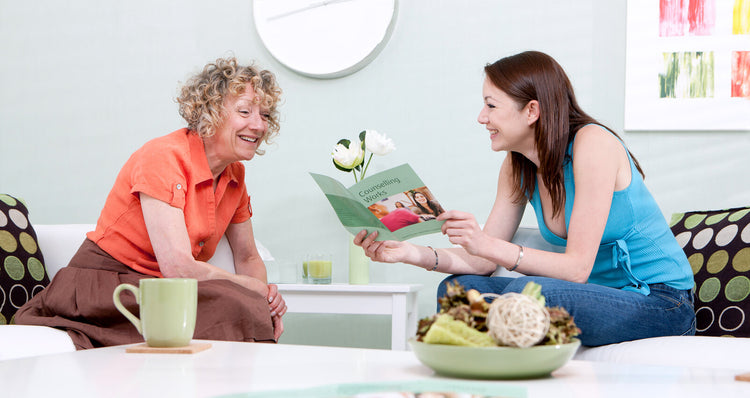Explore our collection of informative and educational blog posts to stay updated on the latest industry trends and expert advice.
How to build rapport with new counselling clients

**This is an updated post**
Why does building rapport with new clients matter so much in the counselling industry? How can you do it more effectively whilst respecting personal boundaries? Clinical Psychologist and Counselling expert, Leanne Hall, shares tips.
Regardless of the type of counselling or therapy you may practice, if you don’t have the rapport with your client, meaningful change is unlikely to occur.
That might sound extreme. However, if you think about it – how can a client really engage in treatment if there is no perceived connection with their counsellor or therapist? Learn all about Counselling and make a real difference in people's lives with CHC51015 Diploma of Counselling
What is rapport?
Think of rapport as the highway that connects the client and counsellor. Building this highway allows for the mutual transmission of information. It ensures that this information reaches its destination so that it can be processed and assimilated. Without the highway, information can get lost in translation – or misinterpreted.
As such, this highway needs to be constructed before (or at least at the same time) therapy or counselling begins. Now this can be an easy process if you “like” your client. But what if you don’t?
Many new counsellors feel guilty when they feel that they just can't take a liking to their client, but it happens to everyone. In these cases, building rapport is even more important. To do this, it’s important to reflect on why you have the feelings you do.
Being honest, and talking to a supervisor can be extremely helpful. Once you work out why you have these negative feelings (which can be quite confronting)– you can learn how to separate them from the counselling process. Only then, you can work on constructing that highway.

5 tips to build rapport effectively
1. Be prepared
Read your client notes before each session. This might sound obvious, however, if you are seeing back to back clients, it can be easy to skip this very important step. Nothing destroys rapport than “forgetting” critical details.
2. Listen without judgement
We all have morals and values. While these should always inform our practice, they should not interfere or intrude on the counselling process.
3. Use disclosure with caution
This is a terrific way to develop rapport, particularly with difficult-to-engage clients. However, be careful. Maintaining professional boundaries is important, so keep it to the small stuff.
4. Be aware of your limitations in knowledge and experience
This is important for new counsellors and therapists. It’s ok to be unsure, and when you are – be honest. Your client will respect this much more than if you try and practice skills you have not yet developed.
5. Use EMPATHY
Active listening not only creates a sense of trust during counselling but it leads to the development of empathy. This is by far the most powerful tool when it comes to developing rapport. Building a meaningful connection with your client will mean that you feel what they feel.
This may mean that you cry when they cry, or you feel anger when they feel anger. This gives powerful insight into what your client is feeling, which can be used to help them understand and process their emotions.
Read thoughts for better living from 25 of the web's top counsellors here.
Building rapport can take time
It’s important to be patient and not to rush the process. This can be a challenge if you are providing time-limited support/counselling. A skilled counsellor can work towards building rapport while at the same time beginning the counselling or therapy process – however, this is a skill which may take time to develop. Learn about other important interpersonal skills here.
Note: For newer counsellors, it’s important to be guided through this process. Supervision is extremely important.
Looking to take the first step toward a career in counselling? Or perhaps attain formal professional learnings if you use counselling skills in your current role? Enrol in our nationally recognised CHC51015 Diploma of Counselling









